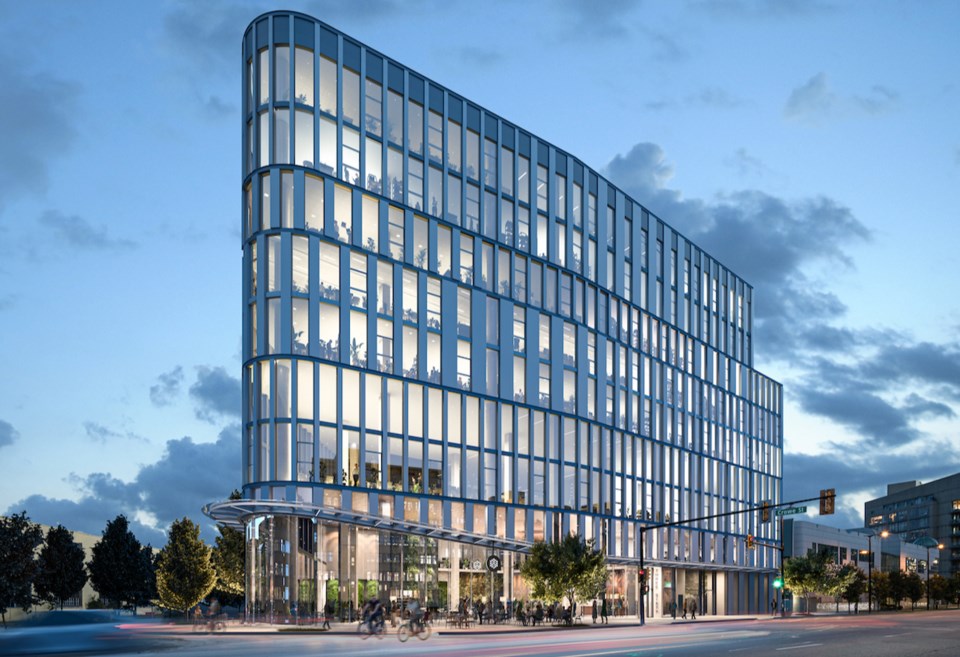The first project under a new zoning designed to encourage greater density for jobs space has kicked off in the Mount Pleasant neighbourhood.
Three Sixty, a 112,000-square-foot mixed-use building combining office and “creative industrial” space, broke ground in a ceremony at 360 West 2nd Avenue on July 19. Project completion is scheduled for 2025.
The project was made possible by its I-1C zoning, Strand president Kevin Johnston said.
“We’ve owned this site for years, and that really made this project possible,” he said. “It improved the economics of the project to the point where it made sense.”
Strand acquired the property about seven years ago, but demolishing the existing structures on the site and proceeding with a project under the original I-1 zoning that provided for a lower density of just 3 FSR (floor space ratio) didn’t make sense.
The city designated sites along West 2nd in Mount Pleasant as I-1C in 2020 following its Employment Lands and Economy Review, which reviewed key economic issues and challenges in the city and forecast anticipated employment space demand to 2051. The zoning also exists on the False Creek Flats, Strathcona and other historically industrial areas that have seen traditional industrial uses displaced and creative industries move in.
I-1C provides for double the density allowed in the I-1 zoning prevalent through much of Mount Pleasant, addressing the need for greater jobs space while maintaining an active streetfront.
“Creating that additional density really allowed the economics of the project to support the construction,” Johnston said. “Office can be a challenging proposition, especially outside the core. So I think that was a great thing the I-1C zoning brought in, and it was an investment by the city to really encourage landowners to develop these properties and create more employment-generating space in Mount Pleasant.”
The zoning encourages employment-intensive light industrial uses on lower levels with compatible office and service uses above. Projects must set aside at least a third of their area for industrial uses, which may include artist studios, event space, churches, clothing manufacturing and cheesemaking. Conditional uses include data centres and aircraft landing pads.
In the case of Three Sixty, Strand has designed the first four floors with overheight ceilings to accommodate creative industrial uses while the remainder of the building will be traditional office space targeting technology, life science, health-adjacent and general office uses.
The project has yet to sign any tenants, but Johnston says a wholesaler has expressed interest in the street-level space, which can also accommodate a restaurant.
The groundbreaking attracted several dignitaries, including Vancouver Mayor Ken Sim, noting that “beautiful buildings” like Three Sixty will help companies attract and retain workers.
"Projects like this represent the future of industrial and employment space in Vancouver – a beautiful building, accessible by transit, with a layout designed for the emerging needs of our local economy.” Sim said in a statement to Western Investor.
Demand for tech talent already makes Vancouver a leading destination for skilled workers. A report from CBRE Ltd. this week ranked Vancouver first in North America for the growth of its tech workforce, and eighth as a tech market when the economics of operating among other considerations are factored in.



